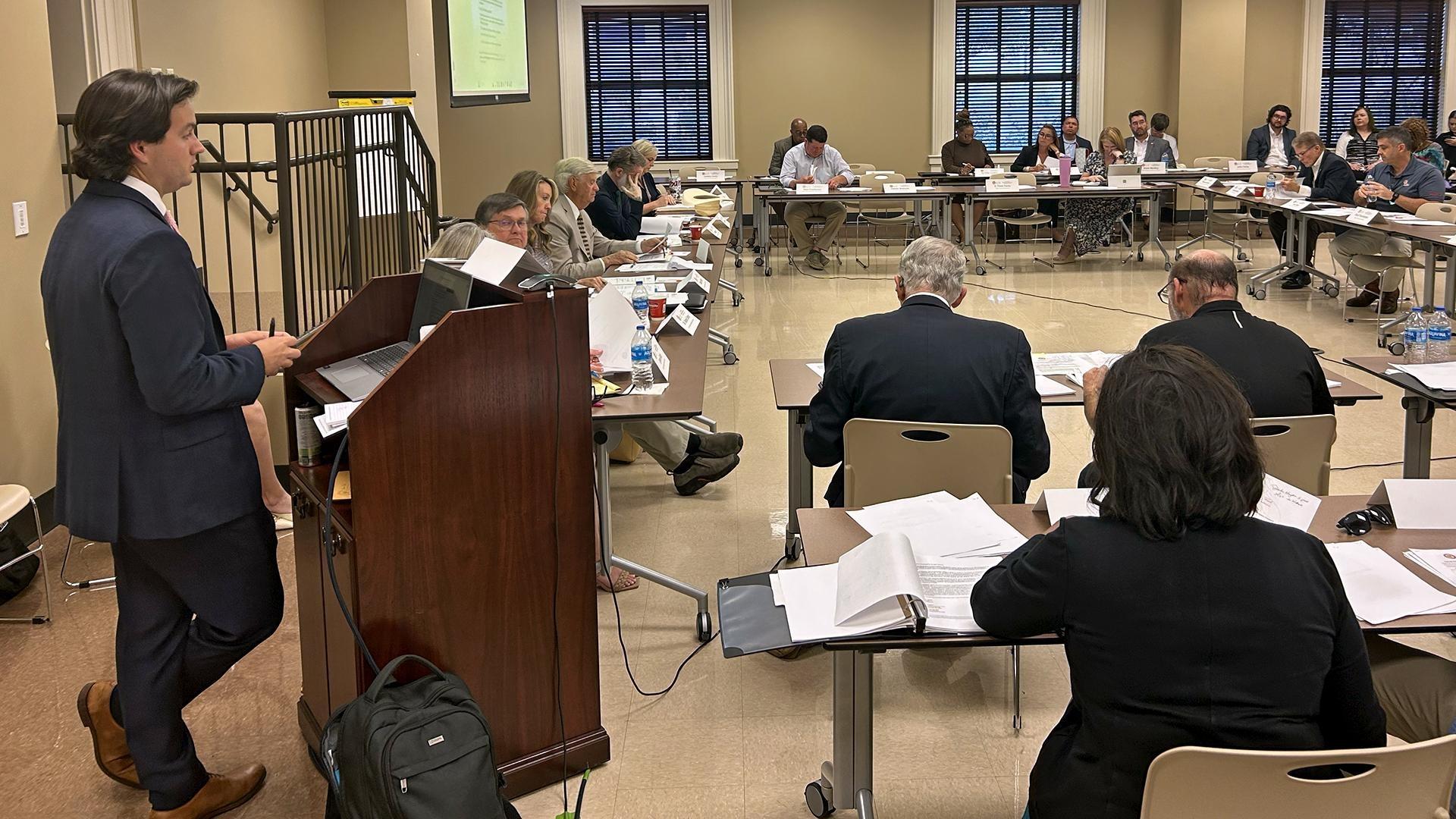The council hammered out its priorities, application language and scoring rubric for the grant applications during the more than 2-hour meeting. The Attorney General’s office plans to post the application online on Monday. Once live on Fitch’s website, organizations will have until September 19 to submit proposals.
The council’s subcommittees will review the proposals and score them according to a rubric that grades applications based on how they satisfy the council’s formal priorities. They’ll then move to the full council before recommendations are sent to the state legislature. The legislature will ultimately appropriate funds from the Opioid Settlement Fund created in 2024.
The state legislature set a December 5 deadline for the council’s recommendations, but several members expressed concerns about meeting that timeline and raised the idea of asking for an extension. The group agreed to wait until after the September 19 application deadline to decide whether to seek more time.
“If it’s a thousand applications, we’ll beg for time,” said Andy Taggart, a lawyer appointed to the council by Lt. Gov. Delbert Hosemann.
Mississippi is already behind neighboring states in distributing opioid settlement funds, all of which have begun allocations. Michelle Williams, Fitch’s chief of staff, said she hopes the council can meet the deadline so the legislature can begin distributing the funding by the July 2026 fiscal year.
Beyond timing and application logistics, the council also debated whether the funding should be used only for Mississippi residents. Some members objected to serving people from neighboring states or those who moved to Mississippi.
Gulfport Police Chief Adam Cooper claimed other states send their unhoused populations to Mississippi and said the state’s settlement funding shouldn’t be used to provide services to them.
“If they hear there’s a program, they’re coming,” Cooper said. “Those other states ship them to us. I don’t want to have that happen. You build it, they will come.”
Others questioned how funding could be “segregated.” Dr. Daniel Edney from the Mississippi Department of Health noted that such a policy could exclude organizations in Gulfport, which has been heavily impacted by the opioid crisis, from receiving settlement funds.
“The community mental health center down on the coast is going to be penalized because they serve whoever comes to them,” Edney said.
Dr. Stephen Loyd, chair of the Tennessee Opioid Abatement Council, said he’s heard similar debates in his state, which borders seven others. He said the funding shouldn’t be restricted solely to Mississippi residents.
“We need to be helping people with addiction who are in our borders right now,” Loyd said. “You're telling me that there's no Mississippians jumping the border and getting help in other states?”
Council member James Moore agreed: “Our communities are better and safer if we treat everyone who needs to be treated, regardless of where they’re from.”
The council eventually landed on the language that the “project is for the benefit of Mississippi residents” on the grant application.
The council also discussed giving higher priority to applicants who can provide matching funds, though some members argued this could be a barrier for smaller community organizations. The group decided not to impose a matching requirement for grant applications under $50,000.
Moore, who runs a small harm reduction nonprofit in Hattiesburg, said he’s glad the council made the decision.
“I think there are some organizations that would not even apply without some of the small concessions that were made today,” Moore said.




